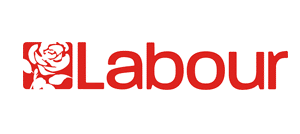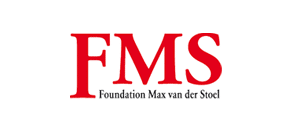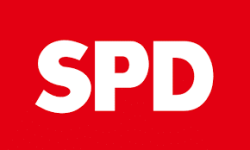Algeria
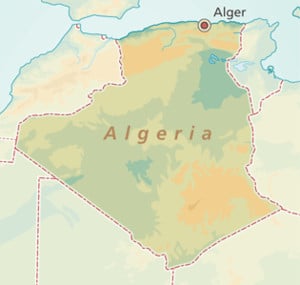
In 2008 parliament amended the Algerian Constitution, removing the two-term limit of the presidency. This allowed Bouteflika to run again in the 2009 elections, which he won. He promised to create more jobs. However, his government failed to do so and Algeria continues to struggle with high youth unemployment and corruption up until today. This was part of the reason why in 2011 protests erupted, as part of the Arab Spring. This triggered some minor changes, with the 19-year long state of emergency being lifted and some political reforms being implemented. In practice the country’s ruling elite, based in the military and the National Liberation Front (FLN) party, continued to wield power in the country.
When Bouteflika announced he would run for president again in the planned April 2019 elections, young people en-masse took to the streets. This has been dubbed the Hirak movement. Bouteflika succumbed to the pressure of the protesters and high-placed military officials, postponed the elections and stepped down. Abdelmadjid Tebboune, also of the FLN, was elected president in December of 2019. However, protesters desire actual political change. Due to COVID-19 many stayed indoors in 2020, but in January of 2021 protests significantly grew in size again. Tebboune dissolved parliament and called early elections in June of 2021, but people continue to take to the streets.
-
Want to get notified by mail when this country gets updated?
Subscribe to our newsflash below!
Key Info
1 Political Situation
Since the civil war, Algeria has been on the road towards democracy, although this has been a strenuous one. The reconciliation plan of Abdelaziz Bouteflika stabilized the country. The rebels of the Islamic Salvation Army that fought the government during the civil war were granted amnesty and reintegrated into society. The economy started growing from around the early 2000s, raising the standard of living of the population. However, much of this growth was due to rising oil prices. With oil making up 95 percent of exports and 60 percent of the government’s budget, the country is heavily dependent on the oil price. This makes the economy extremely volatile, having a significant impact on the political stability.
The growth of the standard of living allowed the ruling elite, based in the military and the National Liberation Front (FLN) party of Bouteflika, to maintain a tight grip on the country. Political and economic reforms were continuously promised, but little changed in practice. When Bouteflika’s second term as president was coming to an end, constitutional changes were implemented that abolished the two-term limit for the presidency. This allowed Bouteflika to run for a third, and later a fourth, term. Only when he officially announced to run for a fifth term in 2019, the population finally had enough. At the point the 82-year old was rarely seen in public, in a wheelchair and not able to speak.
Although Algeria can be described as on a democratic crossroad in 2021, the country still lacks fundamental civil liberties, a democratic political culture and political participation. The military continues to pull most of the strings in politics. Despite there being multiple opposition parties, elections are distorted and the electoral process is not transparent. One cannot speak of ‘real’ opposition to the regime in parliament. The country continues to struggle with violent suppression of protests, legal restrictions on the independence of media and widespread corruption. Despite many promises in the last ten years, little has practically been altered. However, the pressure on the regime is increasing and the massive protests seem to be triggering some change, be it in the long run.
2011 protests as part of the Arab spring
People followed the example of other Arab countries in 2011. Widespread protests broke out over the sudden increase in staple food prices. The government lowered the food prices, but the Arab spring in neighbouring countries inspired labour unions, opposition parties and religious groups to organise large-scale protests across the entire country. In late February, Bouteflika’s government lifted the 19-year state of emergency in response to the protests. As a response to the unrest the authorities promised to make the 2012 parliamentary elections a next step on the road towards more democratisation. But while officials billed the elections as ‘an Algerian spring’ they were mainly marked by a low turnout. Most Algerians prefered stability over political change.
Hirak movement
In the years afterwards the economy started stagnating and even declining from around 2014. The drop in oil prices had an equally negative impact on the standard of living. Youth unemployment started rising again. Young people especially turned against the Bouteflika regime and formed the basis for the 2019 protests, which is called the Hirak movement. Hirak can be loosely translated from Arabic as ‘mobilization of people’ or ‘movement’. Tens of thousands peacefully took to the streets, demanding a complete overhaul of the political system. Protesters were pushing for change and demanded the “removal of everyone” linked to the governing elite. As a result, when Bouteflika resigned and interim President Abdelkader Bensalah took over, protesters were not satisfied yet.
After the election in 2019, which saw Abdelmadjid Tebboune of the FLN gain a majority of the votes, people continued to take to the streets. This was quite unsurprising given the fact that almost the entire new cabinet of Tebboune consisted of politicians who previously served as ministers under Bouteflika. Only when the COVID-19 pandemic hit the country in March of 2020, the protests temporarily stopped. Due to rising COVID-19 infections organizers urged people to stay inside. Distrust in the Tebboune-led government only grew as a result of its poor management of the COVID-19 pandemic in 2020, which in the end sparked more protests.
The president
The head of the executive branch of Algeria is an elected president for a term of five years. One is only allowed to serve as president for two terms, either consecutive or separately. Candidates can be nominated by a popular petition of at least 50.000 registered voters. The president holds a strong position, having power over the judiciary and having many abilities to block votes in parliament. Moreover, the prime minister is also appointed by the president and can be revoked by the president. The prime minister in turn, appoints the members of the cabinet. There is no limit to the number of terms a prime minister can serve, as well as how long one term is. This is completely decided by the president. The country’s current president, Abdelmadjid Tebboune, has been in power since December 2019, after which he appointed Abdelaziz Djerad as prime minister.
The parliament
The People’s Democratic Republic of Algeria has a bicameral parliament, which consists of the National People’s Assembly and the National Council. The National People’s Assembly (the lower house) consists of 462 members who are elected with the universal, direct suffrage according to the proportional representation system. Eight of these seats are reserved for Algerians living abroad. The term of legislature is five years, which can only be renewed once. The members of the National People’s Assembly are directly elected in 48 multi-member constituencies – corresponding to country’s wilayas (administrative districts) – with seats allocated according to the population: one seat for every 80,000 inhabitants and one supplementary seat for every fraction of 40,000. No wilaya has less than four seats. Voting is not compulsory. Either the president or one of the parliamentary chambers may initiate legislation.
In December 1991 the first free multiparty general elections for the former National People’s Assembly were held. After the first round it was very clear that the fundamentalist Islamic Salvation Front (FIS) was going to win. The army then cancelled the elections and suspended the constitution. This escalated and was followed by widespread disturbances and numerous arrests of prominent Islamists. After the Civil War (1992-2001) had cooled down an advisory body on legislation, the National Consultative Council, was set up in April 1992. This body functioned until the National Transitional Council was inaugurated in 1994, which worked towards the adoption of a new electoral law. In 1997 this new electoral law was adopted, shortly after which elections were announced. Elections have been taking place every five years since then.
The National Council (the upper house) was first instituted in 1996 and consists of 144 seats. Wilaya assemblies indirectly elect 96 members of the National Council and 48 are appointed by the president. The term of legislature is six years, of which half of the members are being re-elected or reappointed every three years. Currently the FLN of Tebboune holds 59 seats, the RND 28 seats, with remaining factions and independents making up the remainder of the elected seats. Since July of 2019 Slimane Chenine has been the president of the National Council. The National Council is a legislative branch and must approve any law approved by the National Assembly with a three-quarters majority.
Foreign relations
Since its independence, Algeria has pursued an activist foreign policy. As a former member of the Non-Aligned Movement, Algeria has historically balanced its ties between Western powers and Russia. It has various extensive energy contracts with European countries, the latest deal being with Italy. Algeria also still holds good ties with Russia, also after the its invasion of Ukraine.
With neighboring Morocco, diplomatic relations have been completely cut off since August 2021 over the Western Sahara. Algeria supports the independence of the Sahrawi people in the region, while Morocco sees the territory as an integral part of its country. The disagreement over the issue has spilled to worsening relations of Algeria with other countries, such as Spain.
Gender representation and women’s rights
In Algeria’s current parliament, 26% of all 462 seats belong to female MPs. This was largely due to the adoption of a quota in Algerian law, that stated that parliament should for 30% be made up of women. In the National Council this is much lower, with only 6% of the 144 seats belonging to women. On local levels, the political participation of women also remains low, because the elections are more personal and many fear the consequences it could have on their daily lives. Women remain reluctant to run for office and are regularly not able to attain the most meaningful positions within parliament. Nevertheless, the representation of women in politics is growing, also due to measures taken by the legislative. By constitution, discrimination on the basis of sex is forbidden and the state is required to ensure the status of equality.
In 2015 the parliament voted in favour of several amendments to the penal code, which criminalise some forms of domestic violence. For example, assault against one’s partner or former partner is punishable by up to 20 years in prison and in cases of death even a life sentence is possible. Furthmore, sexual harassment in public has been criminalised. But concrete measures and regulations for authorities on how to prevent and react to domestic violence are still missing. Also, divorcing remains more difficult for women than for men. An unilateral divorce is possible for men, but women need to apply to a court and in case the husband objects, have to pay back their dowry.
There are organisations, which fight for the legal situation of women and the implementation of the human rights that are already written down in the Algerian constitution. An example for feminist activist groups is the Reseau Wassila/Avife (Association contre les violences faites aux femmes et aux enfants). Demands for gender equality have become stronger as part of the Hirak movement, which has made NGOs fighting for women’s rights more vocal. Women continue to face legal and societal discrimination, such as lower wages than men for similar position, sexual harassment and a lack of women in leadership positions. Moreover, daughters are only entitled to the equivalent to half of the brother’s share of inheritance. As such, the Hirak movement has called for a renewed commitment to the status of equality as stated in the constitution.
LGBTI rights
As for LGBTI minorities, Algeria takes a rather conservative stance. Homosexuality is a crime and punishable by up to two or three years in prison, through the application of several laws. Authorities have arrested people for same-sex relations, but it is uncommon to be actually prosecuted. The number of prosecutions has also declined over the years. Even though this is the case, LGBTI people feel vulnerable. When LGBTI people bring their own complaints to the police, they are often pressured to abandon their charges. If not, then they will be prosecuted on the grounds of their sexuality. LGBTI people also have to deal with discrimination from health workers and from their employers. The LGBTI community is not represented in politics and has few means through which it can fight for its political interests.
Meanwhile, there are many reports of violent reactions and hate crimes towards openly LGBTI people. The public opinion opposes more rights for affected persons, because it goes against Islamic faith and Sharia law. Across the country, you can nonetheless find small groups of the LGBTI community that try to raise awareness, such as Gays et Lesbiennes d’Algérie and the Algerian Gay Organization. Despite the anti-homosexuality laws in Algeria, the public’s approval of homosexuality is higher compared to other countries in the region. A survey conducted by Princeton University in 2019 found that 26% of Algerians think that it is acceptable to be gay, the highest approval rating in the MENA region.
2 Elections
2020 constitutional referendum
In an effort to prevent future protests from taking place, Tebboune initiated a referendum on the adoption of a new constitution. The constitution would expand the powers of parliament, promote the independence of the judiciary, combat corruption, strengthen citizens’ rights and balance the power of the president. It was designed to meet the demands of the Hirak movement, but critics point out that in practice it would change little. Although the abolished two-term limit to the presidency was re-installed, Tebboune would be able to govern in a similar manner to Bouteflika. As a consequence, the Hirak movement has been boycotting the entire referendum, which was held on November 1. The new constitution was adopted with a historic low voter-turnout. Not even a quarter of the electorate turned out to vote, with also 10% of votes which were cast blank or were invalid.
Parliamentary elections
2021 parliamentary elections
As predicted, Algeria’s main ruling parties have lost a significant portion of seats in the June 12 parliamentary elections, which were marked by a low voter turnout. Traditionally the country’s largest party, the National Liberation Front (FLN), managed to gain 105 seats in parliament. Despite remaining the largest party, this was down 56 seats from the 2017 election result. The Islamist Movement of Society for Peace (MSP) overtook the Democratic National Rally (RND) as the second largest party. The MSP increased its share of seats from 34 to 64. Meanwhile, the RND lost 43 seats, becoming the third largest party in parliament with 57 seats.
Another Islamist party, Future Front, has also significantly increased its number of seats from 14 to 48. As such, it became the fourth largest party in the country. The last party to gain a significant proportion of the seats, was the Islamist Movement of Society for Peace (MSP), which managed to maintain its 40. The Rally for Hope for Algeria (TAJ) and Algerian Popular Movement (MPA), which previously held 20 and 13 seats respectfully, both failed to gain any seats this time. The remaining eight parties which were elected into parliament all gained three or less seats. 78 seats are assigned to independents. As expected, the Islamist parties have increased their number of seats significantly.
Election Results
Party | Seats in 2021 | Change from 2017 |
National Liberation Front (FLN) | 105 | -56 |
Independent candidates | 78 | +50 |
Movement for Society and Peace (MSP) | 64 | +30 |
National Rally for Democracy (RND) | 57 | -43 |
Future Front | 48 | +34 |
El Bina Movement | 40 | +40 |
The Voice of the People | 3 | +2 |
Good Governance Front (FBG) | 3 | +3 |
Justice and Development Front (FDJ) | 2 | – |
El Fadjr El Djadid | 2 | +2 |
Freedom and Justice Party (PLJ) | 2 | +2 |
Jil Jadid | 1 | +1 |
New Algerian Front (FAN) | 1 | +1 |
El Karama | 1 | -2 |
Total | 407 | – |
Ruling parties likely to maintain influence despite election loss
Despite the ruling FLN, and the supporting party RND, losing the election, they will be able to maintain most of their influence through newly elected independents. Many young people ran this election, hoping to attract the many younger Algerian voters. Many of them remain close with the established parties though, with all independents below 40 receiving government aid. There are 204 seats needed for a majority in the 407 seat Algerian parliament. The FLN and RND combined will only have 163 seats in total, but with the support of independent members of parliament the government will most likely stay put. President Abdelmadjid Tebboune can most likely also rely on the support of many of the Islamist members of parliament.
Even though Islamist parties have increased their share of seats and are considered the election’s winners, they are not likely to significantly alter the status quo. With somewhat over 110 seats, the Islamist parties are well represented, but lack the mandate to take charge. The FLN and RND coalition remains ahead by quite a margin, certainly considering their ties with the elected independent members of parliament. The government also remains backed by the military, who are widely considered to pull the strings within Algeria’s politics. Given all of this, the election result itself will not have much impact on the already by Tebboune promised political and economic reforms.
Low voter turnout puts strain on legitimacy
The boycott of the vote by the protesting Hirak movement, and the traditional, mainly left-leaning, opposition parties, has had an significant impact. The voter turnout was estimated at 30.2% just after the vote, by the official election authorities. This would already be the lowest in at least 20 years for legislative elections. To compare, voter turnout was 43.13% and 35.70% during the 2012 and 2017 elections. However, the Algerian National Independent Election Authority (ANIE) has put the voter turnout even lower, at merely 23.00%. This was published by the Algerian Press Service and would be even lower than the 23.10% voter turnout at the December 2020 Constitutional referendum.
The low voter turnout goes against the government’s aim to call early elections, with which it hoped to boost its legitimacy. Before the elections already, President Tebboune said that he would not interested in the voter turnout percentage, but only in the election result. According to him, it mattered only who were elected into the parliament. However, considering the low voter turnout, similar statements do not sit well with all. Tebboune’s statement that the elections will pave the way for a “new Algeria” and election authority head Mohomad Chorfi’s that “the dynamic of change launched by the protests have been strengthened”, should be read with a critical note in mind.
Protesters part of the Hirak movement and other boycotting the election will be glad to see such a low voter turnout. However, their boycott will be of little impact if they fail to turn their support into political change. Without a clear leader, the ongoing Hirak protests have yet to lead to significant political reforms. Unwilling to compromise, protesters want to see all of the established political elite gone. During this election they were backed by the Worker’s Party (PT) and Rally for Culture and Democracy (RCD). The other party to boycott the election, the Front of Socialist Forces (FFS), distanced themselves more from Hirak’s approach.
Few irregularities amid government crackdown
Fearing that the weekly Hirak rallies in Algiers would take place on election day too, the government shut down the city on June 11. Opposition leader Karim Tabbou, independent journalist Khaled Drareni and the director of a reformist radio station, Ihsane El Kadi, among others, were also detained on June 10. This illustrates the tense climate. The government was unwilling to let many irregularities take place on election day itself. There were recorded incidents of arrests and ransacking of ballot boxes on election day, but overall protesters were prevented from disturbing the elections by heavy deployment of police forces. The elections were not marked by riots or irregularities, but solely by abstention.
Presidential elections
2019 presidential elections
The 2019 presidential elections were initially scheduled to take place on April 18, but large-scale protests erupted after Bouteflika officially announced he would run for his fifth term. When Bouteflika stepped down and Abdelkader Bensalah was installed as interim President, he initially postponed the elections to June 4, but later to December 12. The protests of the Hirak movement had been taking place for almost a year when the elections finally took place. The election was mainly characterized by the low turnout, as a result of the widespread boycott of the vote by the Hirak movement and other opposition forces.
Election results
Candidate | Party | Votes | Percentage |
Abdelmadjid Tebboune | Independent | 4,947,523 | 58.13 |
Abdelkader Bengrina | El Binaa | 1,477,836 | 17.37 |
Ali Benflis | Talaie El Houriyate | 897,831 | 10.55 |
Azzedine Mihoubi | 619,225 | 7.28 | |
Abdelaziz Belaïd | 568,000 | 6.67 | |
Total | 8,510,415 | 100.00 | |
Results show that former prime minister and minister of housing, Abdelmadjid Tebboune, gained far more votes than his opponents, with a percentage of 58.13%. He gained a majority of the votes, making a second round unnecessary. With 17.37% of the votes Abdelkader Bengrina, former minister of tourism, of the Islamist El Binaa party, became second and former head of government, Ali Benfis of the Talaie El Houriyate, became third with 10.55% of the votes. Tebboune promised to fight for a “new Algeria” and “listen to the protesters of the Hirak movement (and) take care of their concerns”. His elections only sparked a new wave of protesters though, with some claiming that he would only be worse than Bouteflika.
Low voter turnout
Although Tebboune won the vote decisively, there are several factors that put a strain on the legitimacy of his election as president. Voter turnout was measured by government officials at 39.88%, although one outside observer claimed it was in fact about 20%. Nonetheless, with just below 40% of eligible voters casting their ballots, this was the lowest turnout for a presidential election since Algeria’s independence in 1962. To illustrate, in 2014 the turnout was estimated at nearly 52%. Meanwhile, 12.76% of the total votes were cast as blank or declared unvalid. These are more votes than three out of five candidates. In the weeks of campaigning many protests erupted, leading to several incidents. Also on election day, the estimated 10.000 protesters which took to the streets when polls opened, caused irregularities. No international observers were actually allowed to enter the country and monitor the vote.
Election boycott
The election boycott has everything to do with the fact that all of the five candidates have links with the ruling elite and previous governments under Bouteflika. As all of the candidates were considered to be part of the political establishment. The lack of any candidates who represent the interests of those in the country who desire actual change explains why the vote was boycotted by the Hirak movement and other opposition forces, such as the Forces of the Democratic Alternative (FDA) alliance and the Justice and Development Front. Before the elections protesters continued to take to the streets, demanding a complete overhaul and radical change of the current system. Protesters declared that the elections were a designation as all of the candidates were put forward by the military-backed regime.
3 Political Parties
Social Democratic Parties
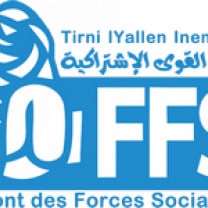
The Front of Socialist Forces (FFS) is a Berber-based social democratic and secularist political party in Algeria and is a full member of the Socialist International. The party can therefore best be described as a centre-left party. It was founded in 1963 by Hocine Ait Ahmed and was banned until 1990, because no other parties were allowed to participate in the parliamentary elections. In the elections in December 1991, the FFS became the third most important political party while participating for the first time in parliamentary elections.
The FFS has always been a strong opponent of the army controlling the (setting up of the) institutions and has always called for the re-establishment of the democratic process. The FFS favours the dialogue with the moderate wing of the Islamic Salvation Front (FIS), despite its deeply secular basis. The FFS has condemned violence as a means of political action, calling for real negotiations with the governing power and re-establishing the FIS. In 2002 the party boycotted the parliamentary elections out of protest for the rights of the Berber population. It also boycotted the 2009 presidential elections, calling it “systematic electoral in favour of ruling parties’. In the latest elections in 2017 the FFS lost 13 of its seats after its big comeback in 2012. After having occupied 14 seats untill then, the FFS boycotted the 2021 elections. It therefore occupies no seats in parliament currently.
Other Parties
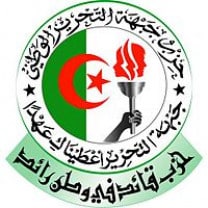
Number of seats: 105
The National Liberation Front (FLN) is the party of former President Bouteflika and a consultative member of Socialist International. It was set up in 1954 as a merger of other smaller groups as a socialist party, to obtain independence for Algeria from France. During the 1980s the FLN toned down the socialist content of its program. In the 2002 parliamentary elections the FLN received 34.3 percent of the votes, gaining the most seats in parliament with 199 seats. It then created a governing coalition together with the National Rally for Democracy and the Movement of Society for Peace.
The former secretary-general of the FLN, Ali Benflis, was a candidate for the presidential elections. He received only 6.4 percent of the votes. After the elections Abdelaziz Belkhadem took control of the party. After the 2007 elections the party formed the ruling presidential alliance, together with the National Rally for Democracy and the Movement of Society for Peace, but the latter stepped out of the alliance in the wake of the 2012 elections. In the 2012 parliamentary elections the party took the majority of the votes winning 208 seats in the parliament.
In October 2016, secretary general of the party, Amar Saidani, stepped down. He was succeeded by Djamel Ould Abbes, former minister of health. After Bouteflika was forced out, many of his close associates followed his lead. At the time the party leader of the FLN was Moad Bouchareb. He stepped down consequently to Bouteflika. Mohamed Djemai, a 50-year-old businessman, was elected as the new leader of the FLN in April of 2019. In the 2017 parliamentary election the FLN lost 44 of its seats, but remained the largest faction. The 2021 elections also showed a similar trend. With 105 seats it remained the largest party, but lost 56 in comparison with 2017.
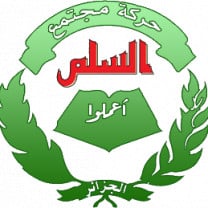
Number of seats: 64
The Movement of Society for Peace (HMS) is an Islamist party that used to be part of the ruling coalition together with the FLN and RND. This party has close relations with the international Muslim Brotherhood. Furthermore, it favours the Civil Harmony Act, an amnesty for guerrillas who lay down their arms, while the party simultaneously condemns violence and the violent actions of radical groups such as Al-Qaeda in the Islamic Maghreb. It participated in the 2012 elections as part of the Green Algeria Alliance. In 2017 it gained one seat in parliament. The party is best described as a right-wing and moderate Islamist party. The 2021 elecions proved an succes for the party, becoming the second largest party with 64 seats.
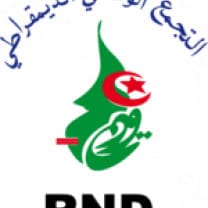
Number of seats: 57
The National Rally for Democracy is commonly seen as the sister party of the FLN. The leader of the party is Tayeb Zitouni. The party has been loyal to the former President of Algeria, Abdelaziz Bouteflika, and considered to have close relations with the politically powerful Algerian military. In the 2017 parliamentary elections the party gained 100 out of 462 seats, which is an increase of 32 seats in comparison to the 2014 elections. The party is best described as a centre to centre-right party, with some economic liberal policies. However, most important in its definition is its role as part of the presidential alliance, currently led by Abdelmadjid Tebboune. This role proved to have impact on the 2021 election result. This party lost 43 of it seats, dropping down to 57. It was overtaken as the country's second largest party.
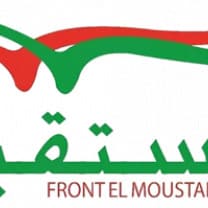
Number of seats: 48
The Future Front is a split-off from the National Liberation Front (FLN). Abdelaziz Belaïd has been the party’s leader since he left the FLN. He ran as a candidate in the 2014 and 2019 presidential elections, finishing third and fifth with 3,06% and 6,67% of the votes respectfully. The party was, like many others, founded in the aftermath of the Arab Spring. The Future Front can best be described as a centre party with a nationalist ideology. It has adopted a cooperative approach in its relation with the governmental parties. In the 2012 elections the party won 2 seats, but its popularity increased in the years after. In the 2017 elections the party managed to gain 14 seats, gaining 4,11% of the votes. This upward trend continued, as the party managed to win 48 seats in the 2021 elections, gaining 34.
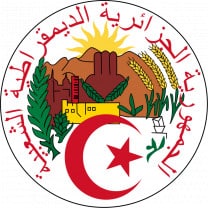
Number of seats: 2
The Justice and Development Front (FJD) is an Islamist political party, which is led by Abdallah Djaballah. Previously, Djaballah was the leader of the Movement for National Reform and the FJD is the latests of a series of Islamist parties founded by Djaballah. The party was established in 2011 and took part in the 2012 parliamentary elections. It gained little over three percent of the vote and was assigned eight seats. Djaballah disputed the election results and claimed the vote was rigged. The FJD boycotted the local elections, which took place later that year. In the 2017 election campaign it allied itself to Islamic Renaissance movement and was again assigned eight seats. The party is best described as a Islamist party and is right-wing on the political spectrum.
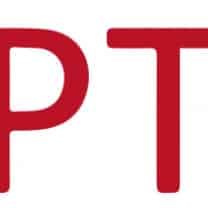
The Worker’s Party is a Trotskyist political party that has close relations with the Worker’s Party in France. In 2004 the party’s chair, Louisa Hanoune, was the first woman in Algeria to run for the presidential elections, receiving one percent of the vote. In the 2012 elections the party gained 24 seats in parliament. In 2017 it only gained 11 seats in parliament, losing 13 in comparison to 2012. The party is best described as a far-left party with a communist ideology. The 2021 election was boycotted by the party.
4 Biographies
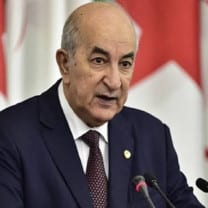
Abdelmadjid Tebboune (17 November 1945) has been Algeria’s president since he assumed office on 19 December 2019. He was decisively elected with 58 percent of the votes, but with a turnout of just below 40 percent. The election was widely boycotted, putting a strain on the legitimacy of his election. Tebboune ran his election campaign as an independent and has no official political affiliation. However, he is considered to have been close with the National Liberation Front under Bouteflika. The party also supported him as candidate for the presidency during his campaign.
Tebboune has been the first elected president since Abdelaziz Bouteflika was ousted in April of 2019. He has served as minister and shortly as prime minister under Bouteflika from 1999 to 2002 and later from 2012 to 2019, the longest as Minister of Housing and Urban Planning. He graduated in 1969 with a degree in economics and finance from the National School of Administration and has since then held many functions in local and national politics.
Tebboune was elected as president amid large scale protests which took place, dubbed the Hirak movement. He promised a "new Algeria" and "political reforms". Many protesters have been sceptical and do not think he can bring the change that they desire. When COVID-19 hit Algeria in March of 2021, Tebboune banned protests and gatherings. With a referendum on Tebboune’s proposed electoral changes in December 2020 only little over 23 percent of eligible voters cast their ballots. Experts stated that with Tebboune’s proposed change, which were supposed to expand the powers of parliament, would change little. Tebboune can rule Algeria in a similar manner to Bouteflika.
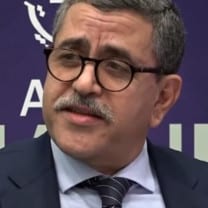
Abdelaziz Djerad (12 February 1954) has been serving as prime minister of Algeria since his appointment by Abdelmadjid Tebboune on 28 December 2019. He was preceded by acting Prime Minister Sabri Boukadoum. Djerad studied at the Institute of Political Sciences and International Relations of Algiers and gained his doctorate at Paris Nanterre University. He previously worked as a professor of political science at the University of Algiers, as well as many other public functions. He has no political affiliation and serves as an independent.
Djerad served under Abdelaziz Bouteflika until 2003, when he was sidelined by the regime. Since then he has been an outspoken critic of Bouteflika and has backed the Hirak movement and their rejection of elections held by a military-involved government. This was already the case before Bouteflika was forced out in April of 2019. He publicly backed the protesters and hoped they could finally force political change. After his appointment Djerad was immediately tasked to form a government, which was named on January 2 of 2020.
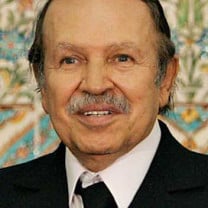
Born on 2 March 1937 in Morocco, Abdelaziz Bouteflika started his political career in the 1960s after Algeria gained independence. He quickly gained the position of Minister for Foreign Affairs, a position in which he stayed until the death of former President Houari Boumedienne in 1978. In this last position Bouteflika was convicted of having fraudulently taken 60 million dinar, but while his colleagues were jailed Bouteflika was granted amnesty after having returned just over 12 million. After the civil war that lasted throughout most of the 1990s between the army and fractions of the Islamists, Bouteflika ran for president as an independent candidate in 1999, supported by the military.
In his first term as President, Bouteflika mainly focussed on restoring the economy by boosting agricultural production and fiscal reform. Bouteflika was also active in the international scene, after the country had been isolated for over a decade. In 2004 he was re-elected in an election which was accepted by the OSCE as mostly free and fair. In his second presidential term he mainly focussed on reconciliation with Islamist forces and giving rights to the Berber community. Even though he was diagnosed with cancer, he ran for a third term in 2009. This happened after he had altered the constitution, scrapping the part which stated that a president can only serve two terms. He was re-elected with over 90 percent of the votes, but opposition forces claimed the election was rigged.
As part of the Arab Spring, large scale protests broke out in 2011. In response Bouteflika abolished the country’s state of emergency, which it had been in since 1992. However, protests and gatherings were still banned by his government. He was again re-elected for a fourth mandate in 2014, with about 81 percent of the votes. In 2013 Bouteflika suffered from a stroke and during his fourth term public appearances became rare. He also lost the ability to speak and walk due to his illness. When he, despite this, officially announced he would run for a fifth term in the beginning of 2019, large scale protests erupted. After months of people taking to the streets Bouteflika was forced by the military to resign in April 2019.
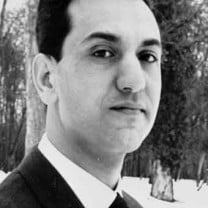
Hocine Aït-Ahmed, born in 1926 as a member of the Berber community in Algeria, was one of the front leaders during the war of independence as the leader of the National Liberation Front. However, he spent most of the time in prison. In 1963 he formed the Front of Socialist Forces, in a time during which he led the Berbers in a revolt against the authorities. He was captured but escaped from prison in 1966 and fled to exile in France and later in Switzerland. After the destabilizing October 1988 riots, he returned to Algeria in December 1989. The FFS was legalized as an opposition party. He actively campaigned in the national parliamentary elections in December 1991 to January 1992 and organized a huge rally in Algiers in support of democracy.
Although he never supported the Islamic Salvation Front, he actively opposed the cancellation of the elections in 1992 by the military, which later turned into a civil war. In 1999 he ran for president, but later denounced his candidacy in protest of irregularities and alleged fraud. Ait Ahmed was a strong advocate of democracy, political pluralism, and human (especially Berber) rights. Aït Ahmed died at the age of 89 in Lausanne, Switzerland on 23 December 2015.
Algerian businessman Mohamed Djemai has been the leader of the National Liberation Front (FLN) since his election in April of 2019. He is a relatively young party leader, but has much experience in politics already. Since 2002 Djemai has held a seat in parliament as an independent and has also served as vice-president of the country’s lower National Assembly for nine years. He has been accused of having this position only due to his wealth.
Although he is different to many of the old politicians, who have basically been ruling Algeria since its independence in 1962, Djemai is very much part of the political establishment. He has been a vocal supporter of former President Abdelaziz Bouteflika and hoped to help Bouteflika win his fifth term. Djemai replaced Moad Bouchareb, another young party leader, who has been serving as the president of the country's parliament. His election sparked quite some criticism within the FLN.
Tayeb Zitouni has been the leader of the Democratic National Rally (RND) since his election in May of 2020. Zitouni succeeded Azzedine Mihoubi, who had been serving as interim party leader after former Prime Minister and party leader Ahmed Ouyahia had been sentenced to jail on the basis of corruption. Zitouni was ousted as a party member in 2016, after he had been highly critical of the party and its leadership under Ouyahia. With Ouyahia gone he was allowed to run for secretary general of the RND. Before going into politics Zitouni studied to become an urban planning engineer.
Youcef Aouchiche has been the party leader of the Front of Socialist Forces (FFS) since he was put forward by the presidential organ of the FFS in July of 2020. He succeeded Hakim Belahcel at the party congress, after a new presidential organ was elected. Aouchiche studied politics and international relations at the University of Algiers and from 2012 till 2017 worked as a journalist. He has been a member of the Lower Assembly since 2017, but previously held many positions within the FFS. At the age of 38 Aouchiche is a young politician and hopes to find durable political solutions to Algeria’s current crisis.
Subscribe to our newsletter
